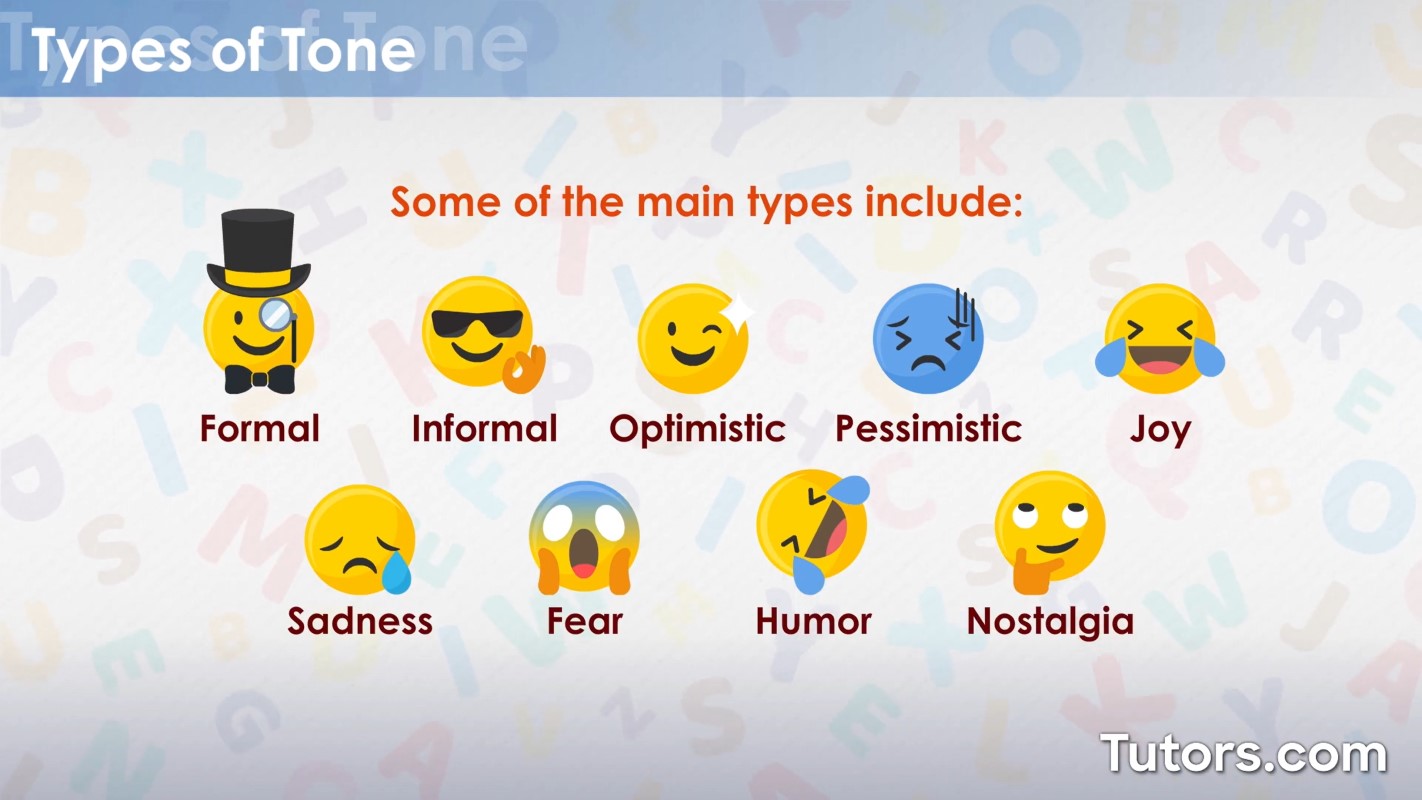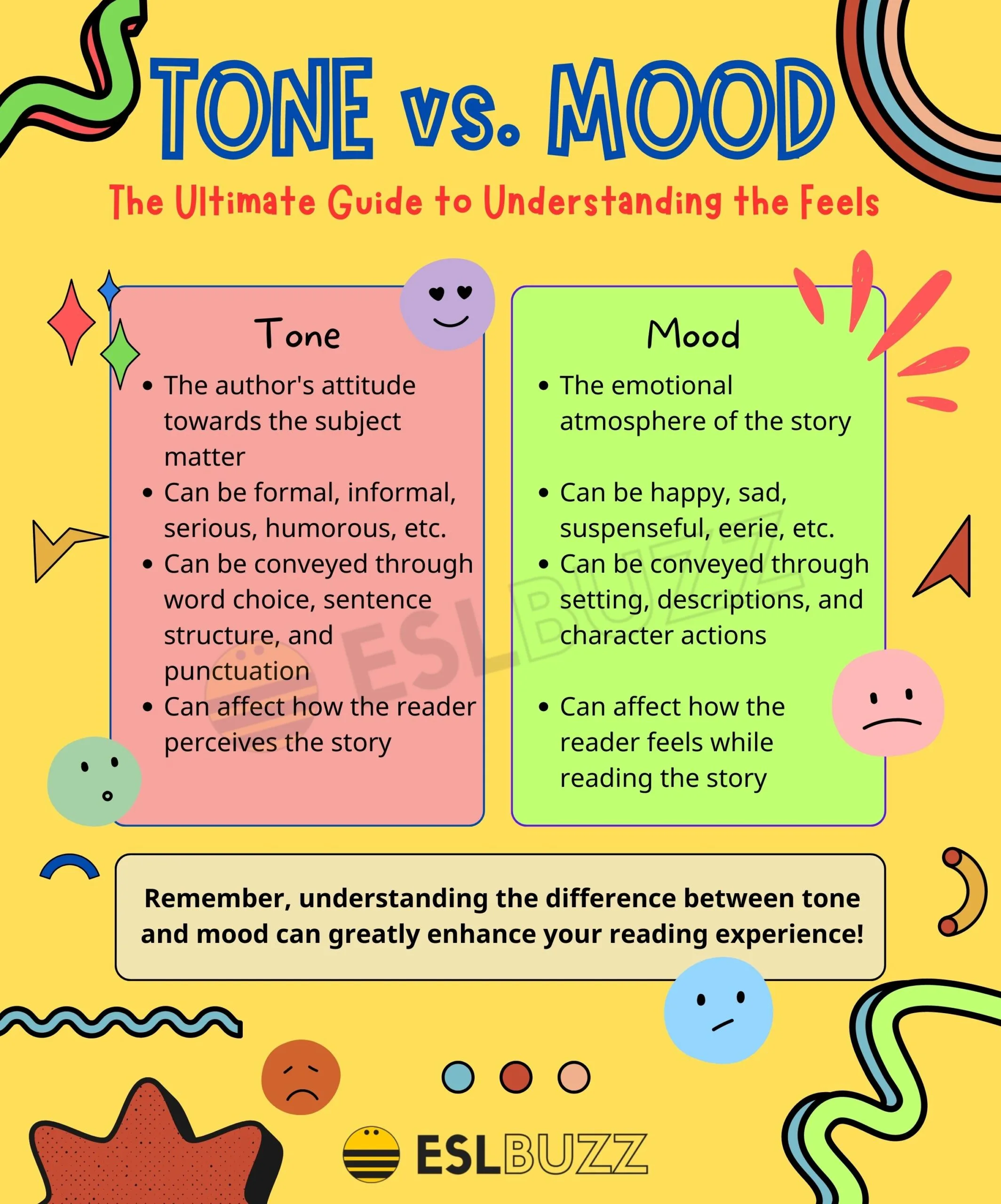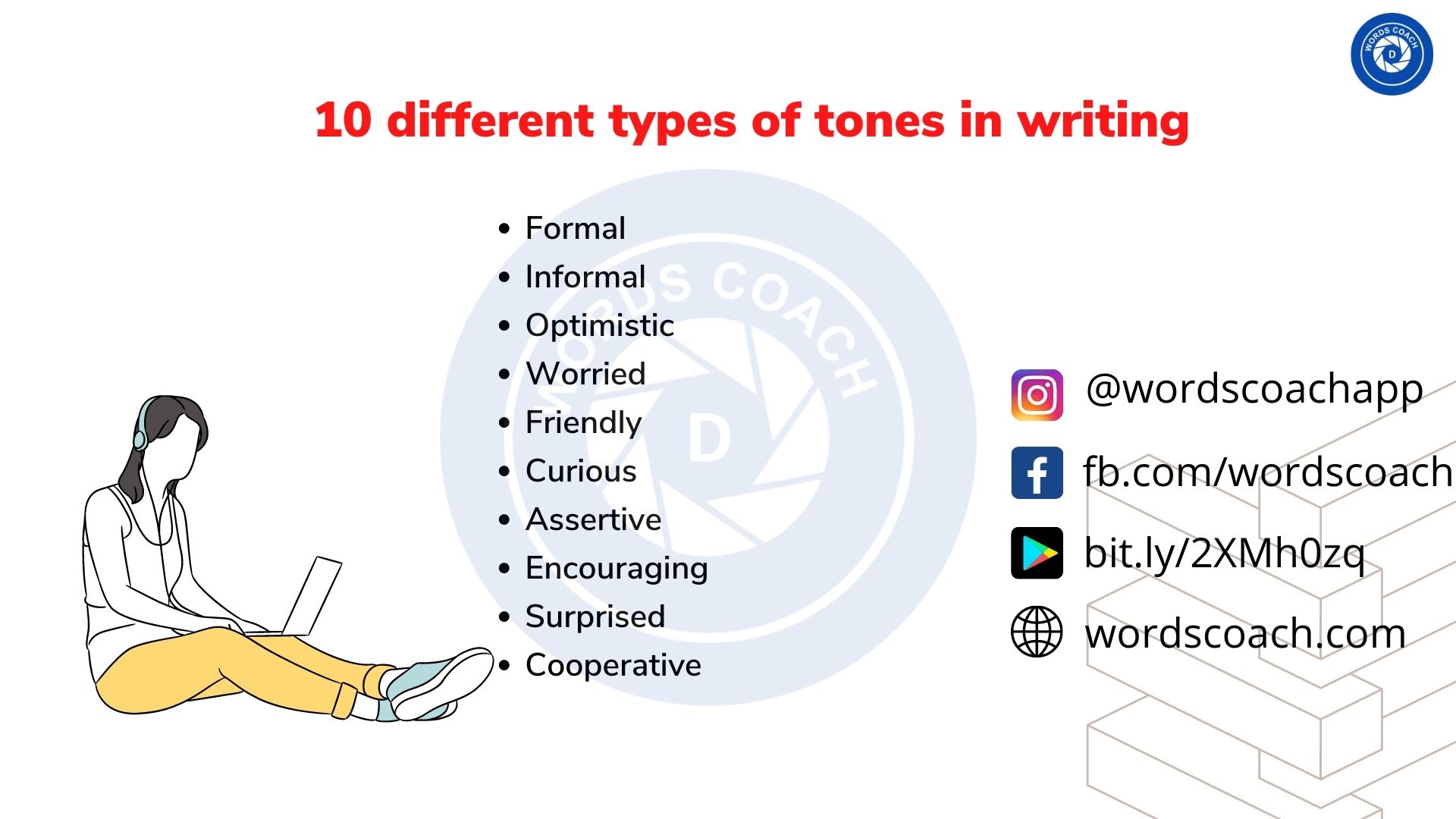Have you ever sent a message, written an email, or said something aloud, and then later wondered if it came across the way you meant it? That, in a way, is the essence of tone. It’s that invisible quality that shapes how your words land, whether you're chatting with a friend or writing something for a wider audience. So, understanding tone is a pretty big deal, actually, because it helps make sure your message hits just right, every single time.
The words we pick are important, sure, but how we deliver them, that’s where the real magic or, sometimes, the real mix-up happens. Think about it: the very same sentence can feel totally different depending on the feeling behind it, you know? It’s like a song; the notes might be the same, but the way they are played changes everything about how it makes you feel, which is kind of similar to how tone works with our words.
This idea of tone, really, it shows up everywhere. From a simple conversation to a detailed piece of writing, the quality of your voice or the style of your words carries a certain attitude. It’s about the feeling you put out there, the way you connect with others. So, let’s explore what tone means for all of us, and how we can use it to make our communication clearer and more effective, too.
Table of Contents
- What is Tone, Anyway?
- Why Tone Matters More Than You Think
- Finding the Right Tone for Your Message
- Practical Ways to Master Your Tone
- Common Questions About Tone
- Making Your Message Resonate
What is Tone, Anyway?
When we talk about tone, it's pretty interesting, actually, because it has a few different sides to it. At its most basic, tone can be about the vocal or musical sound itself, like the specific quality of a sound. You know, how high or low it is, or maybe how clear it sounds. This applies to music, too, where it's about the quality of the sound and how it's expressed, which is a bit like the feeling a musician puts into their playing.
Then, there's the way we use the word "tone" in everyday conversation, too. It’s often about the quality in someone's voice that shows what they are feeling or thinking. So, if someone says, "Her tone was very friendly," they mean the way she spoke conveyed warmth and welcome. It's really about the attitude that comes through when someone speaks, which is pretty much how we figure out what they mean beyond just the words.
In the world of writing, tone takes on a slightly different, yet very similar, meaning. It’s about the overall character or attitude a piece of writing has. This could be cheerful, or maybe a bit sad, sarcastic, or truly sincere, even comical or mournful, you know? It's the feeling the writer puts into their work, which helps readers connect with the message on a deeper level. It’s conveyed through the words chosen and the writer’s viewpoint on the topic, which is pretty clever, if you ask me.
Why Tone Matters More Than You Think
The reason tone is so important, it's almost because it’s the unspoken language of our communication. Without the right tone, your message, no matter how carefully worded, might be misunderstood. Imagine trying to give helpful advice but sounding like you’re lecturing; the receiver might just shut down, right? That’s tone at work, or rather, tone that’s a bit off.
Consider a simple example, too. If you write an email asking for a favor, the tone you use can make all the difference in whether you get a positive response. A friendly tone, like "The friendly tone of her letter," makes people feel good and more willing to help. A cold or demanding tone, on the other hand, can create distance and make people less inclined to assist you, which is just human nature, isn't it?
Moreover, tone is key to building connections and trust. When your tone is consistent with your intentions, people perceive you as genuine and reliable. This is very true in any kind of relationship, whether it’s personal or professional. It helps others feel comfortable and open to what you have to say, which is a big part of getting your ideas across effectively. So, paying attention to tone is really about making your communication work for you, and for others, too.
Finding the Right Tone for Your Message
Figuring out the best tone for what you want to say really depends on a few things. You have to think about who you’re talking to, what you’re trying to achieve, and the situation you’re in, you know? It’s a bit like picking the right outfit for an occasion; you wouldn't wear a swimsuit to a formal dinner, and you wouldn't use a very casual tone for a serious business proposal, either, generally speaking.
For instance, if you’re writing something for a formal setting, like a report or a professional email, a formal tone is usually the way to go. This means sticking to respectful and polished language, avoiding things like contractions, slang, or overly casual expressions. It’s about showing respect for the topic and your audience, which is pretty important in those kinds of situations.
On the other hand, if you're writing a blog post for a general audience or a personal letter, a more conversational and friendly tone might be much better. This allows you to connect with your readers on a more personal level, making your writing feel more approachable and engaging. It’s about making your words feel like a chat, which can be very effective, too.
Different Shades of Tone in Writing
There are, you know, quite a few different kinds of tones you can use in writing, and each one creates a unique feeling for the reader. For example, a cheerful tone might use bright, happy words and light sentence structures, making the reader feel uplifted. A sarcastic tone, though, might use irony or a subtle mocking humor, which can be a bit tricky to pull off without sounding mean, actually.
Then you have tones that are meant to be informative, like in a news article, which tend to be objective and factual. Or perhaps a persuasive tone, often seen in advertisements or opinion pieces, where the goal is to convince the reader of something. Each type serves a different purpose and, so, requires careful word selection and sentence construction to achieve the desired effect, which is something to think about.
It’s really about choosing the right color from your verbal palette, you know? A mournful tone, for example, would use words that express sadness or grief, and the sentences might be longer, perhaps a bit more reflective. The key is to make sure the tone you choose is compatible with the main message and the feeling you want to convey, which is pretty much the core of good communication.
How Word Choices Shape Your Tone
The words you pick, they are pretty much the building blocks of your tone. Every single word carries a certain weight and feeling, you know? For instance, using words like "delightful" instead of "good" can instantly shift a tone from merely acceptable to truly joyful. It’s about the nuances, the subtle differences that add richness to your message.
Sentence structure also plays a very big part. Short, punchy sentences can create a sense of urgency or directness, while longer, more flowing sentences might suggest a thoughtful or contemplative tone. Consider how a writer's viewpoint comes through, too; if they are talking about a serious subject with very light language, it might seem disrespectful, which is something to avoid, obviously.
Even punctuation can affect tone, believe it or not. An exclamation mark can convey excitement or urgency, but too many might make you seem over-the-top or aggressive. A question mark, naturally, signals curiosity or inquiry. It’s all these little pieces working together that create the overall impression, that certain attitude on the part of a speaker or writer, which is pretty neat.
Practical Ways to Master Your Tone
To get really good at managing your tone, there are a few things you can actually practice. First, try reading your writing aloud. This helps you hear how it sounds, and you might catch places where the tone feels off or unclear. It’s a simple trick, but it can be very effective for spotting awkward phrasing or unintended attitudes, you know?
Another helpful tip is to put yourself in your audience's shoes. Think about how they might interpret your words. What are their expectations? What kind of language do they usually respond well to? This kind of empathy can guide your word choices and help you tailor your message so it lands just right. It’s about connecting with them on their level, which is a good thing.
Also, don't be afraid to ask for feedback. Have someone else read your message and tell you how they perceive the tone. Sometimes, we're too close to our own words to see them clearly, and a fresh pair of eyes can offer valuable insight. This is particularly true for important communications, where getting it right is really crucial, you know?
For those interested in the technical side of sound, like the particular quality of a sound, understanding how pitch, strength, and source affect it can be quite fascinating. This knowledge, while different from literary tone, still shows how qualities can influence perception. You can see examples of tone used in a sentence to understand its varied applications, which is helpful.
And speaking of tools and precision, there’s a company, TONE Corporation, a general tool manufacturer specializing in bolt fastening equipment and torque management tools. They have a website with product information, web catalogs, and even custom product estimates. This is, of course, a very different kind of "tone" but it shows how a word can have multiple meanings, which is pretty interesting, actually. You can find their product information, like socket wrenches, tool sets, torque wrenches, and power digitork, on their site. They even support motorsports like SUPER GT and D1 Grand Prix, which is pretty cool.
They also offer great after-sales service, too. For customers who buy their cordless nut runners for tires, TONE offers user registration for advantageous inspection and repair services, ensuring long-term use. This commitment to quality and service, in a way, reflects a "tone" of reliability and trust in their brand, which is something many companies strive for, you know?
They have a column, "Shittokana TONE," which is a very interesting resource, discussing things like precautions for using torque wrenches and storage methods. They also handle custom tool production, though new requests are temporarily paused for certain tool types. You can find their nationwide dealers for TONE products, which is pretty convenient if you're looking for their tools.
Learn more about on our site, and link to this page for more insights into effective communication practices.
Common Questions About Tone
What does "tone" mean in writing?
In writing, tone refers to the general character or attitude a piece of writing has. It’s the feeling the author conveys toward the subject and the audience, which might be cheerful, serious, sarcastic, or sincere, you know? It's like the emotional flavor of the text, and it comes through in the word choices and how sentences are put together.
How can I make my writing tone more friendly?
To make your writing tone more friendly, you can use conversational language, avoid overly formal words, and perhaps include a few personal touches. Using contractions can also help, as can choosing words that convey warmth and approachability. It’s about making your reader feel like you’re having a chat with them, which is often very effective, actually.
Why is understanding tone important for good communication?
Understanding tone is important for good communication because it helps ensure your message is received as intended. The right tone prevents misunderstandings and builds stronger connections with your audience. It’s the difference between your words being heard and truly felt, which is pretty much essential for effective interaction, you know?
Making Your Message Resonate
Ultimately, the way we use tone, it’s a powerful tool for getting our messages across clearly and effectively. Whether you're speaking, writing, or even just thinking about how you present yourself, paying attention to that underlying quality, that attitude, can make a huge difference. It’s about more than just the words; it’s about the feeling they carry, which is pretty much everything.
So, as you go about your day, communicating in all sorts of ways, take a moment to consider the tone you’re using. Is it compatible with what you want to say? Does it show the right attitude towards your audience? By being mindful of your tone, you can ensure your voice, whether vocal or written, always conveys exactly what you mean, which is a valuable skill to have, truly.
And remember, practice makes perfect. The more you pay attention to tone in your own communication and in the communication of others, the better you'll become at using it to your advantage. It's a skill that grows with conscious effort, and it’s something that can really improve all your interactions, which is a pretty good outcome, actually.
For more detailed insights into effective communication strategies, you might find this resource helpful: Grammarly's Guide to Tone. It offers a broader perspective on how tone shapes various forms of writing, which is something worth looking into, too.



Detail Author:
- Name : Thelma Bernhard
- Username : salma.renner
- Email : sauer.maybelle@hotmail.com
- Birthdate : 1996-11-29
- Address : 73153 Jenkins Falls Gutkowskiport, PA 81596
- Phone : +1 (740) 534-2107
- Company : Fadel, Auer and Hoppe
- Job : Mechanical Inspector
- Bio : Doloremque quia numquam alias reprehenderit. Autem tempora perspiciatis veritatis aut ipsa. Eum rem laborum assumenda quo similique tempora modi.
Socials
facebook:
- url : https://facebook.com/beahan1976
- username : beahan1976
- bio : Occaecati vel deserunt error pariatur amet animi aut.
- followers : 1048
- following : 1981
instagram:
- url : https://instagram.com/beahan1998
- username : beahan1998
- bio : Quia et voluptatum odio. Voluptatem at et quidem alias sit maiores. Ipsa quidem placeat accusamus.
- followers : 750
- following : 1976
tiktok:
- url : https://tiktok.com/@chelseybeahan
- username : chelseybeahan
- bio : Accusamus ullam quos molestias est eligendi maiores ducimus ad.
- followers : 2151
- following : 1701
twitter:
- url : https://twitter.com/chelseybeahan
- username : chelseybeahan
- bio : Consequatur sed sit dicta et repellendus dolores. Qui enim excepturi soluta. Qui tempore maxime et nihil ex qui.
- followers : 3723
- following : 2050

